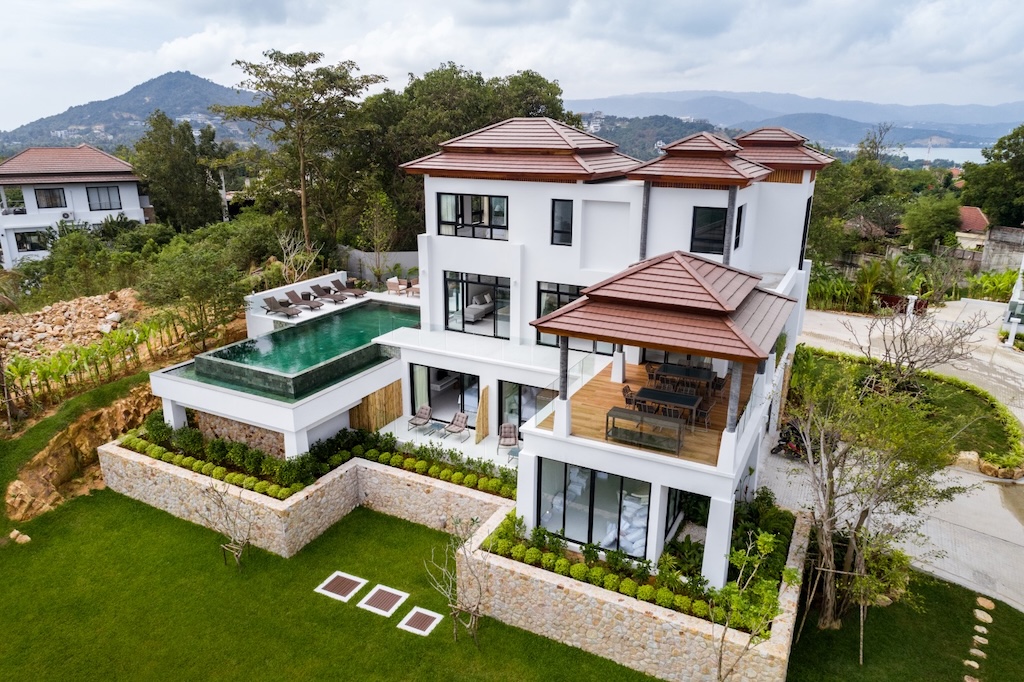
Understanding Phuket Building Regulations: A Comprehensive Guide
Navigating the intricate landscape of the Phuket building regulations is crucial for anyone looking to invest in real estate on this picturesque island. With its stunning beaches and lush landscapes, Phuket attracts numerous investors, developers, and homeowners. However, the importance of understanding the local zoning laws and construction guidelines cannot be overstated. Here we aim to provide an extensive overview of Phuket’s building regulations, ensuring that potential investors can make informed decisions while adhering to legal requirements.
The Importance of Building Regulations in Phuket
Building regulations serve as a framework that governs construction activities, ensuring safety, environmental protection, and aesthetic harmony. In Phuket, these regulations are particularly vital due to the island’s unique geography and the need to balance development with the preservation of its natural beauty.
Phuket Building Regulations: Protecting the Environment
Phuket’s building regulations are designed to protect the island’s fragile ecosystems. By enforcing rules related to construction practices, developers are encouraged to minimize their environmental impact. This includes restrictions on building heights, land use, and the preservation of green spaces.
Ensuring Safety
Safety is a paramount concern in construction. Building regulations in Phuket include provisions for structural integrity, fire safety, and emergency access. Compliance with these regulations helps prevent accidents and ensures that buildings can withstand natural disasters, such as storms or earthquakes.
Promoting Sustainable Development
Sustainable development is a key focus of Phuket’s building regulations. By promoting eco-friendly practices and responsible land use, the regulations aim to create a balance between economic growth and environmental conservation. This includes encouraging the use of renewable energy sources, efficient waste management, and sustainable building materials.
Overview of Zoning Laws in Phuket
Zoning laws dictate how land can be used and what types of structures can be built in specific areas. In Phuket, these laws are established to maintain order and enhance the quality of life for residents and visitors alike.
Types of Zones
Phuket is divided into various zones, each with its own set of building regulations. The primary categories include residential, commercial, and mixed-use zones. Each zone has specific guidelines regarding building height, density, and land use.
Residential Zones
In residential areas, the regulations often focus on maintaining a peaceful environment and ensuring that homes are built within certain aesthetic guidelines. This may include limitations on the size and style of structures, as well as requirements for landscaping and setbacks from property lines.
Commercial Zones
Commercial zones are designated for businesses and commercial activities. Building regulations in these areas may allow for taller structures and higher density, reflecting the need for commercial growth. However, developers must still comply with safety and environmental standards.
Mixed-Use Zones
Mixed-use zones allow for a combination of residential and commercial developments. This flexibility can lead to vibrant communities but also requires careful planning to ensure that the needs of both residents and businesses are met.
Key Departments Involved in the Phuket Building Regulations
Several governmental bodies oversee the enforcement of building regulations in Phuket. Understanding the roles of these departments can help investors navigate the regulatory landscape more effectively.
Ministry of Natural Resources and Environment
This ministry is responsible for the overall management of natural resources and environmental protection in Thailand. It plays a crucial role in establishing guidelines for construction that consider ecological impacts and sustainability.
Department of Public Works and Town & Country Planning
This department oversees urban planning and the implementation of building codes. It is responsible for reviewing construction applications and ensuring that projects comply with zoning laws and safety standards.
Local Government Authorities
Local municipalities in Phuket also have a say in building regulations. They enforce zoning laws, issue building permits, and monitor construction activities within their jurisdictions. Engaging with local authorities early in the development process can help identify potential issues and streamline approvals.
Understanding Building Height Restrictions In Phuket
Building height restrictions are a critical aspect of the Phuket building regulations. These limitations are designed to preserve the island’s natural beauty and prevent overdevelopment, particularly in coastal areas.
Phuket Building Regulations: Coastal Areas
The regulations stipulate that buildings located near the beach must adhere to strict height limitations. Generally, the closer a structure is to the shoreline, the lower the maximum height allowed. This approach helps maintain unobstructed views and protects the coastal environment. Within the first 50 meters of the shoreline you can only build to a maximum of 6 meters heigh. From 50 – 200 meters from the shoreline you can build a maximum of 12 meters high. From 200 – 400 meters from the coastline construction can be a maximum of 16 meters high.
Phuket Building Regulations: Elevated Land
Recent changes to Phuket’s regulations have opened up opportunities for construction on elevated land. However, buildings in these areas are still subject to height restrictions, with specific limits based on the altitude of the property. For instance, structures built above certain elevations may have stricter height caps to prevent excessive development on hillsides. From 40 meters above sea level you can only construct to a maximum height of 6 meters. From 80 – 140 meters above sea level construction is permitted to a maximum of 6 meters with the footprint of the building not exceeding 90 Sqm with 70% of the land must be left as green space.
Environmental Impact Assessments
Before commencing construction, developers may be required to conduct Environmental Impact Assessments (EIAs). These assessments evaluate the potential effects of a project on the surrounding environment and help identify measures to mitigate negative impacts.
When is an EIA Required?
The need for an EIA often depends on the scale and location of the proposed development. Larger projects or those situated in ecologically sensitive areas are more likely to necessitate a comprehensive assessment. Engaging environmental consultants can ensure compliance with EIA requirements.
Benefits of Conducting an EIA
Conducting an EIA not only helps developers meet regulatory obligations but also enhances the overall sustainability of a project. By identifying potential environmental issues early on, developers can implement strategies to minimize their ecological footprint and improve community relations.
The Role of Legal Counsel in Real Estate Development
Engaging a reputable lawyer is essential for anyone looking to invest in property or develop in Phuket. An experienced legal professional can provide valuable guidance throughout the process, ensuring compliance with all building regulations in Phuket.
Conducting Due Diligence
Before making a purchase, it’s crucial to conduct thorough due diligence. This includes verifying land titles, checking for zoning restrictions, and assessing any potential legal issues related to the property. A lawyer can help navigate these complexities and protect your investment.
Navigating the Approval Process
The approval process for construction projects can be intricate and time-consuming. A lawyer can assist in preparing the necessary documentation, submitting applications, and liaising with government authorities to expedite approvals.
Common Pitfalls to Avoid
Investors and developers should be mindful of common pitfalls that can arise during the building process in Phuket. Being aware of these challenges can help mitigate risks and ensure a smoother experience.
Ignoring Zoning Regulations
One of the most significant mistakes is neglecting to understand and comply with zoning regulations. Failing to adhere to these rules can result in fines, legal disputes, or even the demolition of structures deemed illegal. Always consult local authorities and legal counsel to confirm compliance.
Overlooking Environmental Considerations
Neglecting environmental factors can lead to significant consequences. Projects that fail to address ecological concerns may face delays, fines, or reputational damage. Prioritizing sustainability and conducting thorough assessments can help avoid these issues.
Skipping Legal Review
Some investors may be tempted to bypass legal counsel to save costs, but this can be a costly mistake. Engaging a lawyer ensures that all legal aspects are addressed, reducing the risk of future complications.
The Future of Building Regulations in Phuket
As Phuket continues to develop, building regulations are likely to evolve. The local government is increasingly focused on balancing growth with environmental preservation, which may lead to further changes in the regulatory landscape.
Emphasis on Sustainability
Future regulations may place an even greater emphasis on sustainable building practices. Developers who embrace eco-friendly technologies and materials may find themselves at an advantage as the market shifts towards greener solutions.
Technological Integration
The integration of technology into building practices is also on the rise. Smart building solutions that enhance energy efficiency and reduce environmental impact may become standard requirements in upcoming regulations.
Phuket Building Regulations: Conclusion
Understanding the building regulations is essential for anyone looking to invest or develop property on Phuket. By familiarizing yourself with the zoning laws, height restrictions, and environmental considerations, you can navigate the complexities of the regulatory landscape more effectively. Engaging legal counsel and conducting thorough due diligence will further enhance your chances of a successful real estate venture in this beautiful destination. With the right knowledge and preparation, you can contribute to Phuket’s sustainable growth while enjoying the benefits of your investment.





